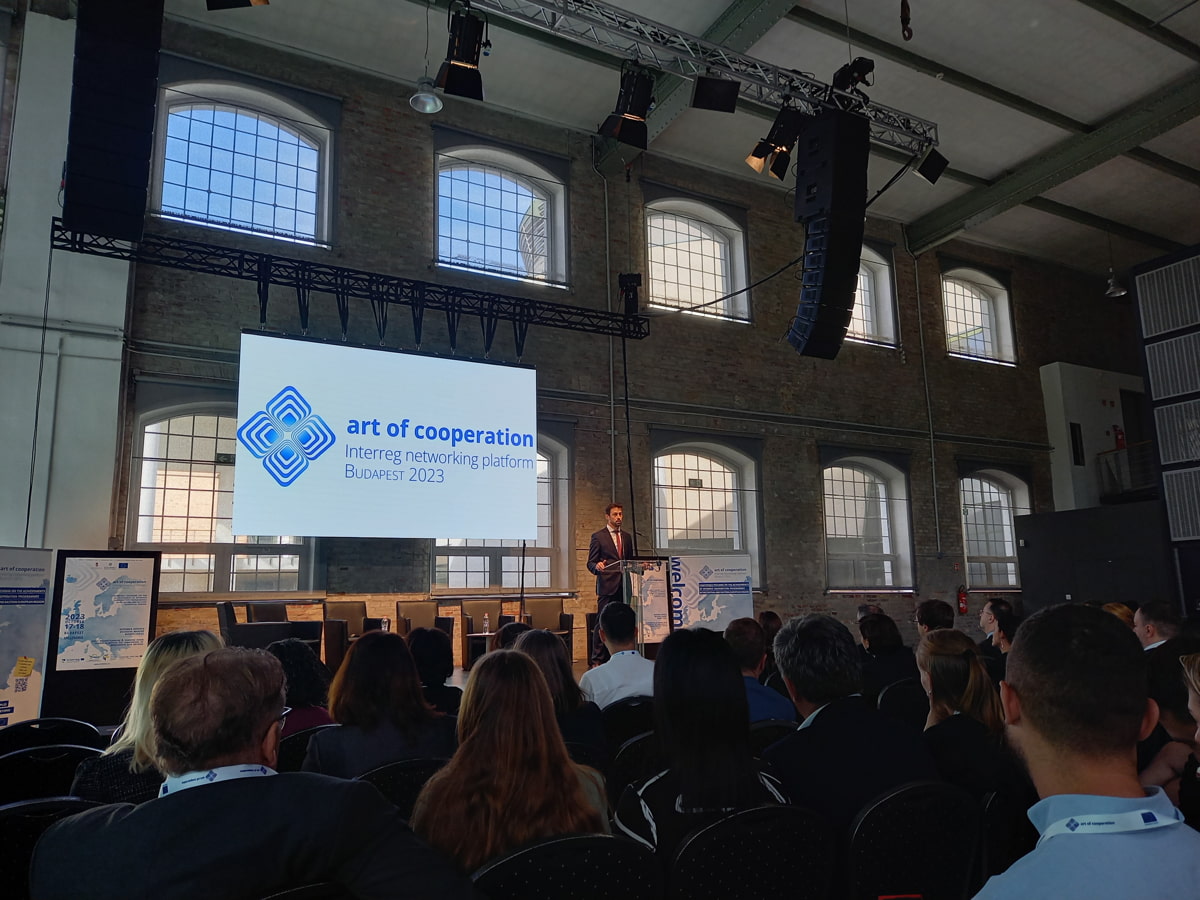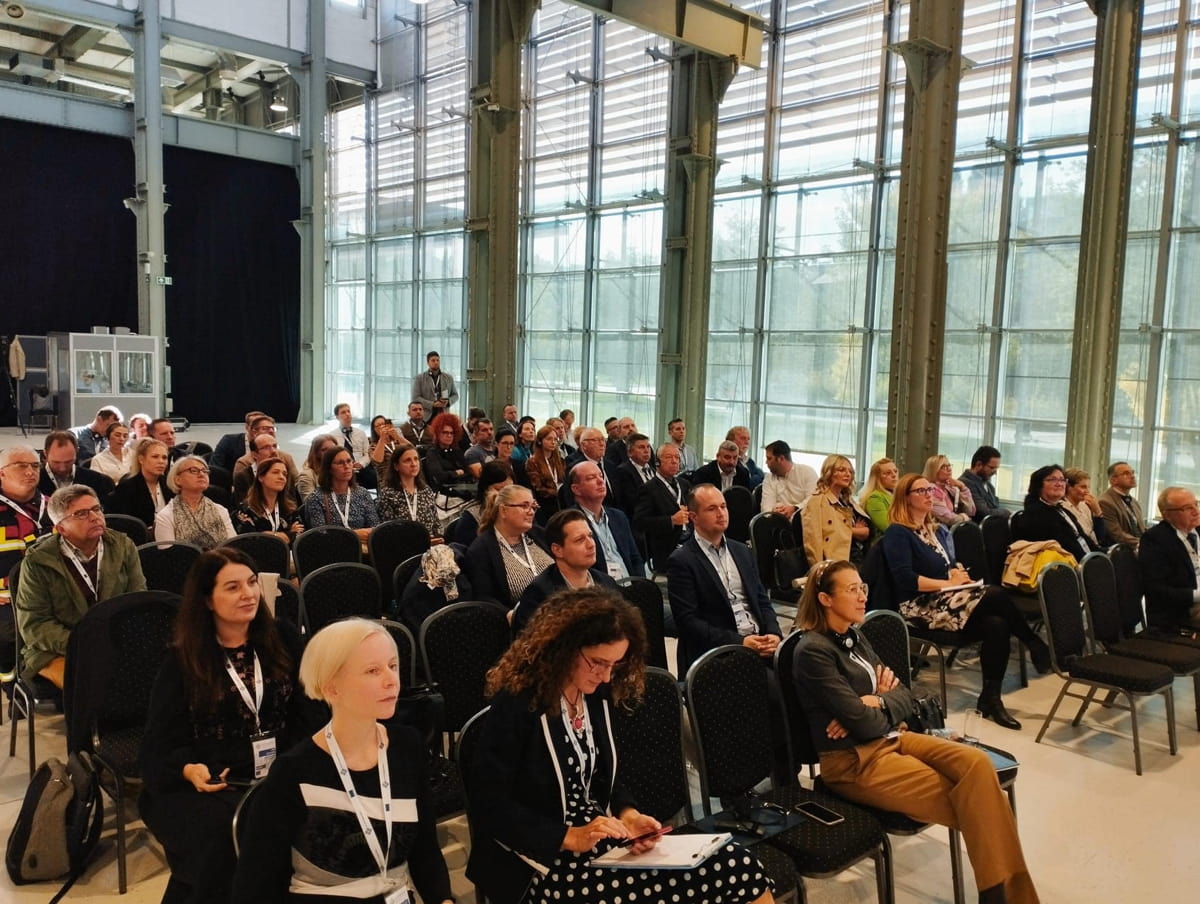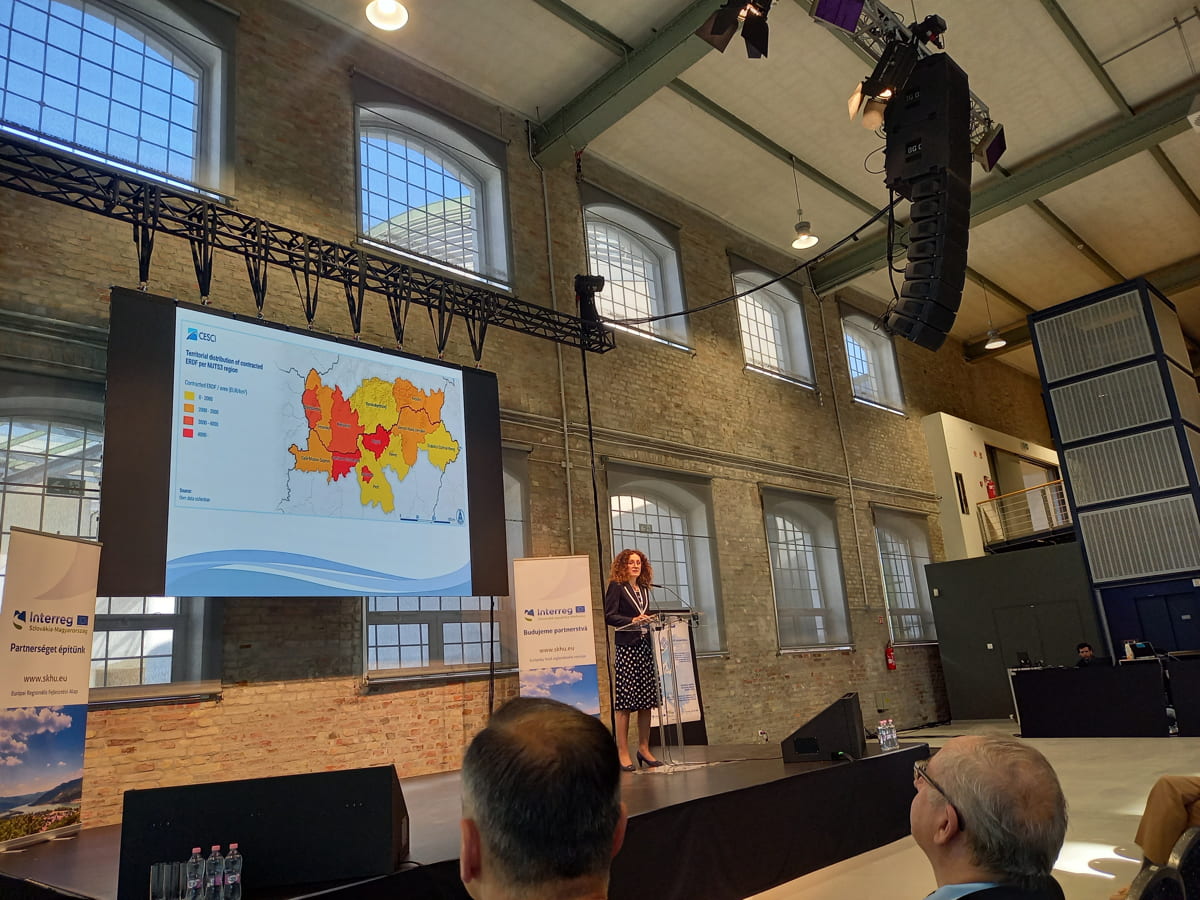Art of cooperation – A conference and a new platform for exchanges in Central and Eastern Europe
Knowledge sharing + Project development | 24 October 2023
On 17 and 18 October, the Széchenyi Programme Office giving home to the Joint Secretariats of several cross-border programmes organised an extremely successful international conference convening the representatives of the Central and Eastern European Interreg CBC, IPA, NEXT and transnational programmes and further border stakeholders in Budapest which was a groundbreaking event targeting closer cooperation between these actors. The conference created the platform for exchanges for the future.
In his introductory speech, Mr Áron Szakács, managing director of the Széchenyi Programme Office summarised the history of the Interreg programmes appointing at the most recent negative developments both in terms of financing and significance in EU policies. The main aim of the conference was to increase the visibility of the Interreg programmes, especially those from the Eastern part of the Continent. Deputy state secretary of the Hungarian Ministry of Foreign Affairs and Trade, Mr Péter Kiss Parciu also highlighted that unlike the larger western European countries, this region is characterised with small countries where even 50% of the total population may live in a border area. This specificity valorises the role that the CBC programmes play, which should also be acknowledged by the EU institutions.
This message has clearly been underpinned by the panels of the event, started with a round-table discussion reflecting on the major achievements of the Interreg programmes, the first lessons of the new calls and the future of the European Territorial Cooperation objective. The discussion moderated by Filip Chybalski, expert of the DG REGIO has shown that these programmes are the closest to the citizens and they have a positive impact in the field of trust building. The participants of the discussion representing 10 CBC and one transnational programme, formulated practical recommendations as well, for the future of the Cohesion Policy.
The 8 parallel sessions focussed on different aspects of the CBC programmes, like the simplified cost options, the small project funds, assessment and selection procedures, etc. CESCI was in charge of moderating the panel addressing the integrated territorial tools where the representatives of three programmes (Andrea Mayrhofer, member of the Joint Secretariat of the Bavaria-Austria, Marcela Glodeanu, head of the Managing Authority of the Romania-Bulgaria and Silvester Holop, deputy head of the Joint Secretariat of the Hungary-Slovakia CBC programmes) shared their experiences gained during the development and implementation of the integrated tools.
The second-day agenda included the closing of four previous programmes and the kick-off of the new programmes managed by Hungary. At the kick-off of the new Hungary-Slovakia programme, on behalf of CESCI and CESCI Carpathia, Gyula Ocskay and Rudolf Bauer presented the ACCESS project designed to systematically unfold and eliminate cross-border legal and administrative obstacles along the Slovak-Hungarian border.
The nearly 600 participants including the beneficiaries of more than 30 projects exhibited at the project fair justified the timely nature of the event which may create a regularly organised platform for exchanges and giving a voice for the CBC programmes implemented in Central and Eastern Europe.
Further information about the conference can be read here.
Honlapunk a Külgazdasági és Külügyminisztérium támogatásával készült.
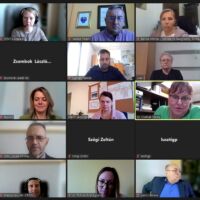
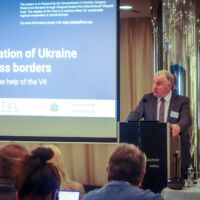 EU integration of Ukraine across borders. International conference in Košice...
EU integration of Ukraine across borders. International conference in Košice...